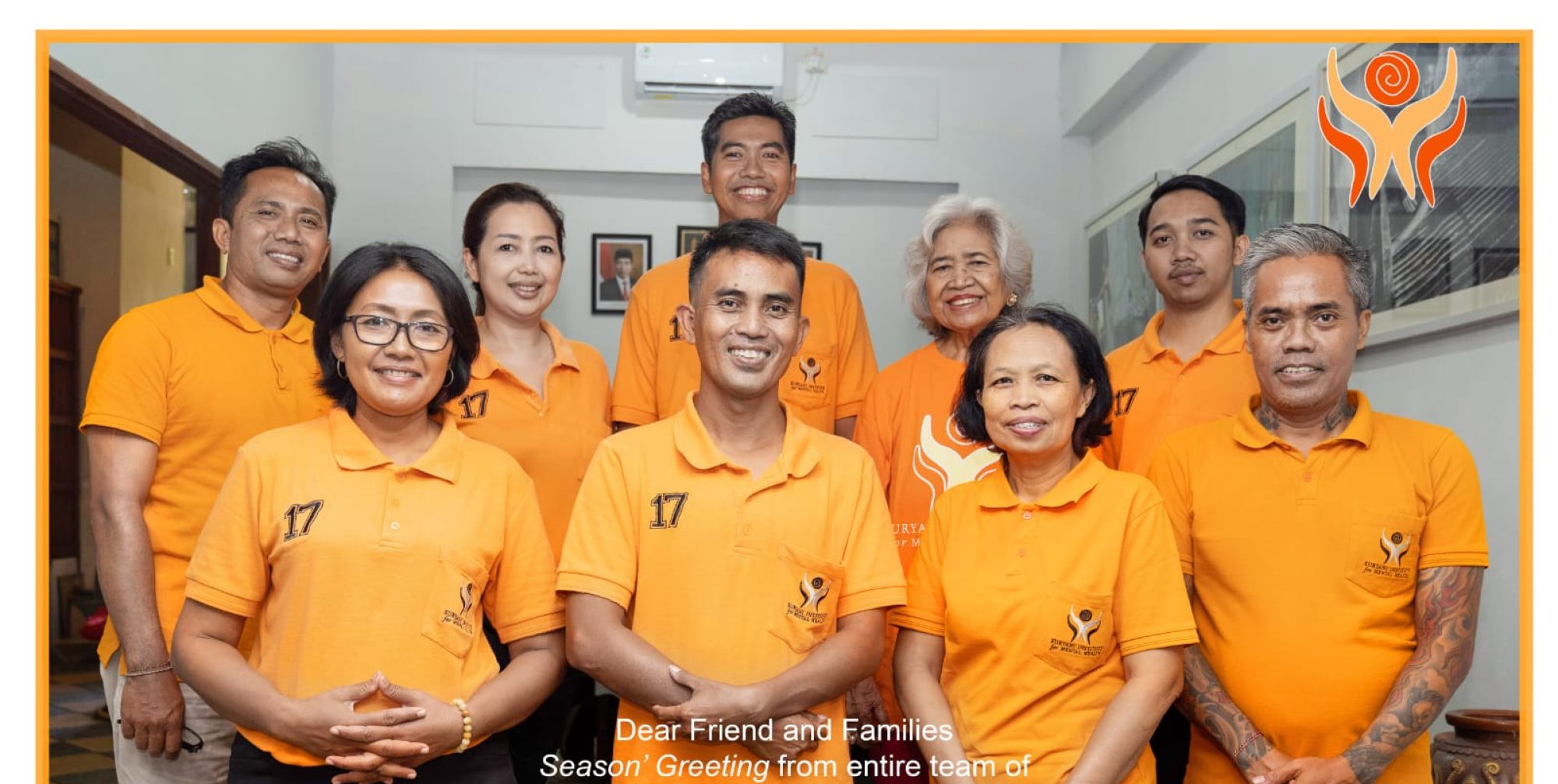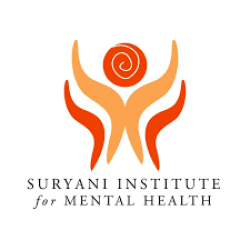Mental Health
This is arguably the focal activity of the institute. As a result of the inadequacy of the mental health system in Bali and the existence of two conflicting or at best uncoordinated therapeutic approaches (the traditional vs. medical interventions), both the prevalence of mental illness and the conditions of non-referrals have been largely unknown. Our evidence suggests that a larger number of mentally ill individuals (probably over 7,000 people) exist in our community that are unreported and thus untreated. Our institute was the first in Indonesia to conduct population epidemiological surveys in Bali in order to identify these individuals. So far we have surveyed just under half a million people and have identified about 900 such cases. Our institute has been continuously treating all identified cases, totally free of charge, by applying a holistic model of therapeutic intervention, we call a biopsycho-spirit-sociocultural approach. At the treatment level, our approach utilises medical psychiatric interventions and clinical psychological counselling. At the prevention and maintenance levels, we have established community-based workshops and lectures on mental health, mutual family support groups, monthly public dialogues with community and religious leaders, and weekly meditation-relaxation training. Our approach is proven to be superiorly capable of providing a holistic intervention with optimum effectiveness and sustainable applicability. It is our conviction that through the prudent and systematic implementation of holistic, culturally sensitive and community-based strategies, a development of a mental health model can be achieved that offers a fair and effective service to the population. For more information please look at our research publications, read our continuously updated news section, and look at the coverage of our activities in the media.
Crisis Centers
In Bali, the number of suicide cases has significantly risen since 2000. The institute, through a number of ongoing research programs and continuous monitoring in collaboration with the local police, has identified chronic mental illness as the main cause of this rise, followed by interpersonal problems, and chronic physical illness. In addition, poor economic conditions have significantly contributed to this increase. Inadequate mental health systemic support and insufficient hospital-based interventions leave a large number of individuals with serious mental health problems untreated. Outreach services have not been nationally promoted as a means of improving access and mental health outcomes. Furthermore, there is only a handful of psychiatrists that service the 4 million population of Bali. In order to help reduce the number of people committing suicide in Bali and provide a first line of support and immediate intervention, our institute has created two crisis centers, known as Layanan Hidup Bahagia (Happy Living Services) in two regencies on the island (Karangasem and Buleleng). So far, the centers have successfully helped hundreds of individuals (free of charge). Our motto is Fight Against the Darkness. For more information please read our news section.
Child Protection
Millions of children worldwide are subjected to violence. Protecting children from violence, exploitation, and abuse is an integral component of protecting their rights to survival, growth, and healthy biopsychological development. Working together with The Committee Against Sexual Abuse (CASA), the first organisation in Indonesia to implement the 2003 National law on child protection, was a previlage for the institute. Together the two organisations advocate and support the creation of a protective environment for children, in partnership with the local and federal governments, national and international NGOs and law enforcement agencies – such as the Australian Federal Police (AFP) and the Federal Bureau of Investigation (FBI) – as well as the private sector and the social services.
For more information please read our news section or visit our sister organisation The Committee Against Sexual Abuse.
Suport for the Elderly
Four of the ten fastest-growing elderly populations worldwide can be found in Southeast Asia, and Indonesia has perhaps the most striking profile of them all. As the strengths and weaknesses of current provisions for the elderly are the best guide to the future, a sound knowledge of existing arrangements and their limitations is a necessary baseline for any examination of the issue. For this reason our institute collaborates with the Yayasan Wreda Sejahtera (YWS; Bali Elderly Welfare Foundation), the first non-profitable organization in Indonesia that promotes elderly care preventively since 1988. More than 5,000 elderly in Bali have joined our program, while our approach has been adopted in other parts of Indonesia, and is supported by the Ashoka Foundation and the Boehringer Ingelheim.
For more information please read our news section or visit our sister organisation Bali Elderly Welfare Foundation (Yayasan Wreda Sejahtera).
Programs for teachers
The institute is closely working with the Indonesian Teachers’ Organization and the Indonesian Kindergarten Teachers Association, with the further collaborative support of national and international NGOs, like the the Sukacita Foundation. Through frequent, free of charge, workshops and research programs we strive to educate and update the teachers on matters of childhood psychological and psychopathological development. We continuously assist teachers with promoting and applying high quality pedagogical settings and programs, and employing adaptive and successful techniques that encourage pupils to develop creativity, independence, and psychological health. For more information please read our news section.
Meditation
Life has always been a puzzle, full of surprises, and slow to reveal its pattern and sense. Now, we find a further challenge. Our world changes ever more quickly. Each technological achievement and the globalisation of information take us further away from the simpler ways of our ancestors. It seems that as our world becomes more mechanized and divorced from nature, we easily become cut off from important parts of ourselves. The question of how to respond to this increasing alienation concerns not only individuals but whole cultures. Meditation is a special kind of doing in which we allow less to be done. The key principle of many forms of meditation is to reverse the ordinary direction of attention, which is usually towards activity and sensory experience, and to allow the activity of the mind and body to become more settled, until we enter a state beyond our ordinary experience, in which the mind becomes expanded and the body energized. The institute provides weekly sessions on meditation training (free of charge), which are usually attended by hundreds of people. The mediation method we use was developed by the institute’s founder, Professor Suryani, through her more than 50 years of relevant experience. It combines elements of traditional forms of meditation with trance conditioning and group therapy procedures that partialy follow positive and existential psychology themes.

